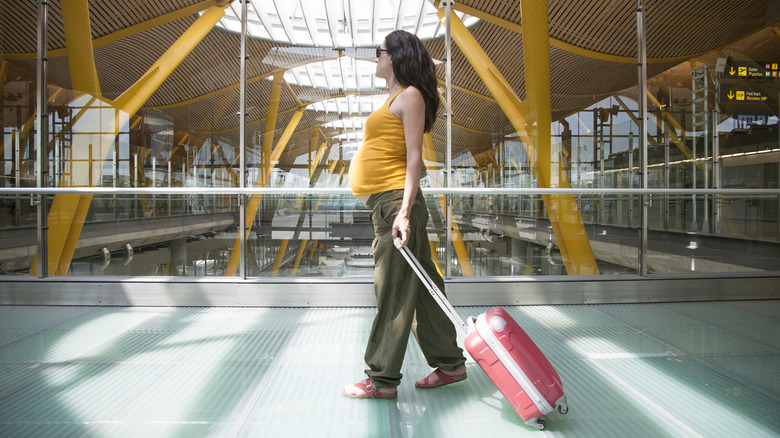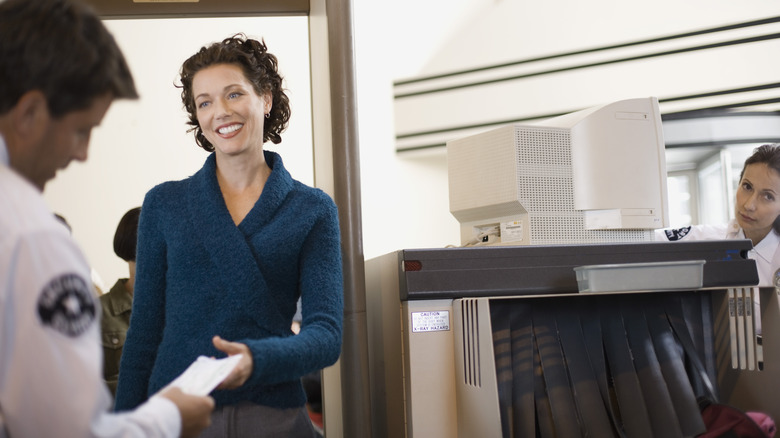Are TSA Scanners Actually Dangerous For Pregnant People?
Whether heading to a babymoon destination or squeezing in one last business trip before your maternity leave, you might find yourself passing through an airport at some point during your pregnancy. And while air travel is generally safe for most expecting mothers, you may wonder if the airport security procedures are even worth the trouble.
One of the biggest concerns about flying for many pregnant people is the safety of the Transportation Security Administration (TSA) body scanners. There are two types of machines commonly found in most U.S. airports: non-ionizing radiation scanners and ionizing radiation scanners. Non-ionizing machines include metal detectors and millimeter wave machines (the ones where you stand in a capsule with your hands raised), while ionizing equipment include the strong X-ray scanners used for luggage and backscatter passenger scanners, the latter of which has been largely phased out. According to the Environmental Protection Agency, all types of airport body scanners are safe and pose minimal health risks for all travelers, including those who are pregnant.
Experts say the scanners are safe for parents-to-be
As an expecting parent, you want to ensure the best for your growing bundle of joy, and that means keeping them safe from danger and health threats. However, it can be hard to determine if TSA scanners are truly safe, especially with so much conflicting information online. Search on travel-related message boards or online parenting communities, and you'll inevitably find someone advising other pregnant people to avoid the scanners. In some cases, people even share that their doctor told them to skip the machines.
Ultimately, it's best to listen to your OB-GYN, not strangers on the internet, when organizing travel during your pregnancy. Most doctors will give the OK to walk through airport body scanners, given their low risks. TSA also confirms in a video that its standard screening devices don't rely on X-rays and are safe for everyone, including pregnant travelers. Additionally, the Health Physics Society notes that even full-body scanners that use X-ray imaging don't pierce the skin, so there is no risk to fetuses developing in the womb.
How to opt out of using the body scanners
If you still have doubts or if your doctor suggests you avoid TSA scanners while traveling, the good news is you don't have to cancel your vacation plans. TSA encourages anyone concerned about the safety of the machines to opt out and receive a pat-down check instead. This consists of having a (usually same-gendered) officer scan the body and clothing using their hands. The procedure is usually done within the security checkpoint, just next to the baggage belt, but you can ask to be taken to a private room instead.
Although TSA allows airport visitors to opt out of using its scanners, not all TSA agents are particularly accommodating. If a security officer pressures you into walking through the machines, inform them of the policy and stand your ground if they continue to challenge your request. Getting a note from your doctor before traveling may help you make your case.
It can take time to find an officer for the pat-down, especially at busy airports, so arrive early and leave yourself extra time for security. Once the check is done, you can be on your way to your gate.


